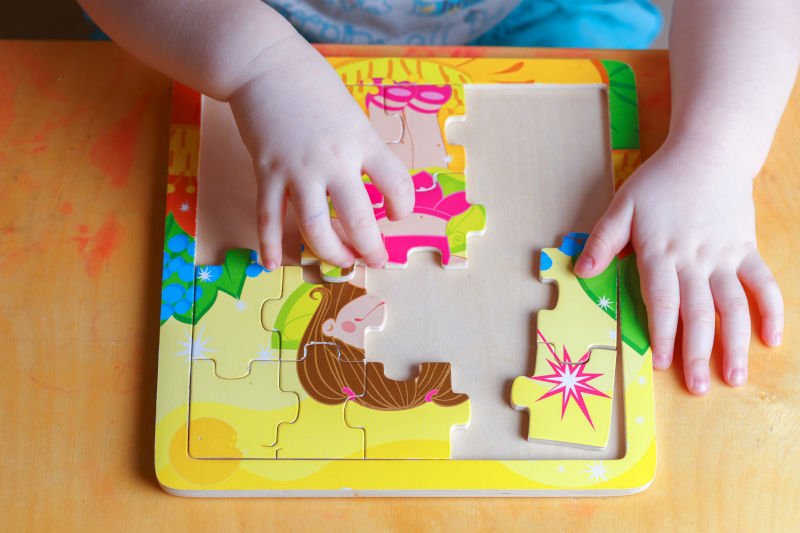Introduction to Puzzles for Children
Puzzles are engaging activities that challenge children to think critically while also providing enjoyment. These diverse tools can take many forms, from traditional jigsaw puzzles to logic-based challenges, all encompassed under the broad category of types of puzzles for children. Their significance in childhood development cannot be overstated, as they contribute positively to several key areas of growth.
One of the primary advantages of puzzles is their role in enhancing cognitive skills. Children learn to recognize patterns, shapes, and colors while also developing spatial awareness, which is crucial for later academic success in subjects like mathematics and geometry. As children manipulate pieces to fit them together, they are required to analyze and think creatively, promoting logical reasoning skills that will serve them well throughout their educational journey.
In addition to cognitive developments, types of puzzles for children play a significant role in fine motor skill enhancement. When children grasp, turn, and place puzzle pieces, they strengthen the small muscles in their hands and fingers, which are essential for writing and other daily tasks. This tactile engagement not only aids in coordination but also helps in building dexterity, an important aspect of physical development.
Towards a more emotional aspect, solving puzzles provides a sense of accomplishment and satisfaction. Completing a challenging puzzle can boost a child’s confidence and self-esteem, encouraging them to take on new challenges in other areas as well. The joy derived from both the process and the outcome reinforces persistence and resilience, attributes that are invaluable as children’s lives become more complex.
Ultimately, the various types of puzzles for children serve more than just entertainment; they are essential developmental tools that nurture a child’s cognitive, physical, and emotional wellbeing. This exploration of puzzles will highlight the various forms and benefits they bring to the playful learning environment.
Types of Puzzles Based on Age Group
Puzzles provide children with an engaging way to develop cognitive skills and fine motor abilities. Understanding the different types of puzzles for children based on their age group is essential for fostering their learning experiences. Each age group requires specific characteristics in puzzles to match their developmental stages. Below, we explore the suitable types of puzzles for toddlers, preschoolers, and older children.
For toddlers, typically aged 1 to 3 years, puzzles come in various forms, primarily focusing on large, chunky pieces that are easy for tiny hands to manipulate. Wooden or foam puzzles with only a few pieces are ideal, often featuring bright colors and basic shapes or animals. These types of puzzles for children not only aid in hand-eye coordination but also assist in familiarizing them with everyday objects in a fun and interactive manner.
As children progress into the preschool age range of 3 to 5 years, they become ready for more complex puzzles. At this stage, jigsaw puzzles with 4 to 12 pieces, often with matching themes like vehicles, animals, or storybook characters, are appropriate. These puzzles enhance problem-solving skills and introduce concepts such as spatial awareness and the ability to recognize patterns. Magnetic puzzles or those accompanied by educational elements can also stimulate learning while keeping children engaged.
Older children, typically aged 6 and above, can tackle more intricate puzzles that involve a higher number of pieces, often ranging from 25 to 100 or more. These types of puzzles for children may involve themes more aligned with their interests, such as fantasy, adventure, or even educational subjects like geography. The added complexity not only challenges their reasoning abilities but also fosters critical thinking and perseverance, as they work to complete more demanding designs.
In conclusion, choosing the right types of puzzles for children based on age helps support their developmental needs and ensures a beneficial, enjoyable learning experience. The right puzzle can guide children through critical stages of growth, instilling a sense of achievement and fostering a love for problem-solving.

Popular Categories of Puzzles for Children
Puzzles are a valuable tool for cognitive development and play a significant role in fostering critical thinking and problem-solving skills in children. There are various types of puzzles for children, each offering unique attributes to aid in their growth. Among the most popular types are jigsaw puzzles, shape sorters, and logic puzzles.
Jigsaw puzzles are perhaps the most recognized form of puzzles for children. They come in numerous themes and difficulty levels, allowing children to build fine motor skills and spatial reasoning as they piece together images. When selecting jigsaw puzzles, it is essential to consider age-appropriate options that will keep children engaged while challenging them just enough to promote learning.
Shape sorters are another engaging type of puzzle that helps younger children understand shapes and colors. These puzzles often consist of different shapes cut from wood or plastic that fit into corresponding slots. They contribute to a child’s hand-eye coordination and cognitive development as they learn to identify and manipulate various shapes. When considering shape sorters, opt for those with varying complexities that cater to your child’s developmental stage.
Logic puzzles, including Sudoku and other reasoning-based games, are also important in introducing older children to critical thinking skills. These puzzles challenge children to think creatively and analytically, helping to enhance their problem-solving abilities. Many logic puzzles are designed in a fun and interactive way, often incorporating themes or characters that interest children, making the learning experience enjoyable.
Other popular categories include maze puzzles, word puzzles, and mathematical puzzles, each serving to sharpen different skills. For parents seeking engaging options, many brands offer high-quality, educational puzzles geared towards various age groups. This diversity in types of puzzles for children ensures that there is something for every young mind to enjoy and learn from.
Benefits of Engaging with Puzzles
Engaging with different types of puzzles for children provides a myriad of benefits that contribute significantly to their overall development. One notable advantage is the enhancement of cognitive abilities. Puzzles challenge children’s thinking processes, requiring them to utilize problem-solving skills and critical thinking. This engagement can lead to improved memory and concentration, as children must remember pieces’ shapes and colors and maintain focus to complete the task at hand. Research has consistently shown that children who regularly engage with puzzles demonstrate superior spatial reasoning and cognitive skills compared to their counterparts who may not have such experiences.
Furthermore, the emotional benefits of solving puzzles are profound. Children develop a sense of patience and perseverance as they work through challenges presented by different types of puzzles for children. Successfully completing a puzzle instills a sense of achievement and boosts self-confidence. This emotional resilience is essential as children learn to navigate their experiences and face future challenges with a positive attitude. Puzzles, therefore, serve not only as a source of entertainment but also as a vital tool for fostering emotional growth.
Social development also plays a critical role in the benefits of puzzle engagement. When children collaborate on puzzles, they learn valuable lessons in teamwork and communication. They must express their thoughts and ideas while listening to others, fostering a sense of camaraderie. Group puzzle-solving activities can also help enhance their social skills, enabling kids to make connections with peers while enjoying shared accomplishments. The multifaceted benefits of puzzles highlight their importance not only as enjoyable pastimes but as essential components of children’s playtime that support cognitive, emotional, and social development.
